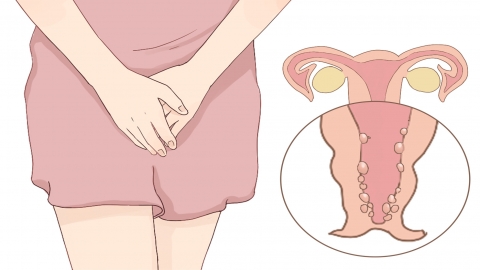What should I do if my private area is a bit itchy?
Generally, the main causes of mild itching in the genital area include poor hygiene, clothing irritation, vulvovaginal candidiasis, bacterial vaginosis, and lichen sclerosus. Depending on the specific situation, patients may improve symptoms through general management, medication, or physical therapies. Detailed analysis is as follows:
1. Poor Hygiene
Failing to clean the genital area promptly or over-cleaning can lead to accumulation of secretions that irritate the skin, or damage the skin barrier, causing itching. It is recommended to wash the external genitalia daily with warm water, avoid using irritating cleansers such as soap, change underwear frequently, and keep the genital area dry.

2. Clothing Irritation
Tight synthetic underwear can cause poor ventilation and skin friction, while detergent residues may irritate the genital skin and trigger itching. Switch to loose-fitting cotton underwear, thoroughly rinse clothes after washing to avoid detergent residue, and reduce friction on the genital area.
3. Vulvovaginal Candidiasis
Overgrowth of Candida species leads to infection, irritating the vaginal and vulvar mucosa and causing intense itching, often accompanied by white, curd-like discharge. Antifungal medications such as clotrimazole suppositories, miconazole nitrate suppositories, or fluconazole capsules may be used under medical guidance. Avoid sexual intercourse during treatment and maintain good genital hygiene.
4. Bacterial Vaginosis
An imbalance in vaginal flora—such as an overgrowth of *Gardnerella* bacteria—leads to inflammation, irritating the genital skin and mucosa and resulting in itching along with a fishy-smelling discharge. Treatments may include metronidazole suppositories, clindamycin phosphate vaginal gel, or tinidazole tablets, as directed by a healthcare provider. Keep the vulva dry during treatment and avoid unhygienic sexual practices.
5. Lichen Sclerosus
This condition involves degenerative changes in the vulvar skin and mucosa, leading to thinning and atrophy of local tissues. Increased sensitivity of nerve endings causes itching, and long-term cases may result in skin depigmentation. Topical treatments such as clobetasol propionate cream, progesterone ointment, or tacrolimus ointment may be prescribed under medical supervision. In severe cases, focused ultrasound therapy for the vulva may be required. Postoperative care is essential to prevent infection.
In daily life, it's important to keep the genital area clean and dry, wear breathable cotton underwear, avoid excessive use of cleansing products to minimize irritation, undergo regular gynecological checkups to detect abnormalities early, and practice safe sex to reduce the risk of infection.




